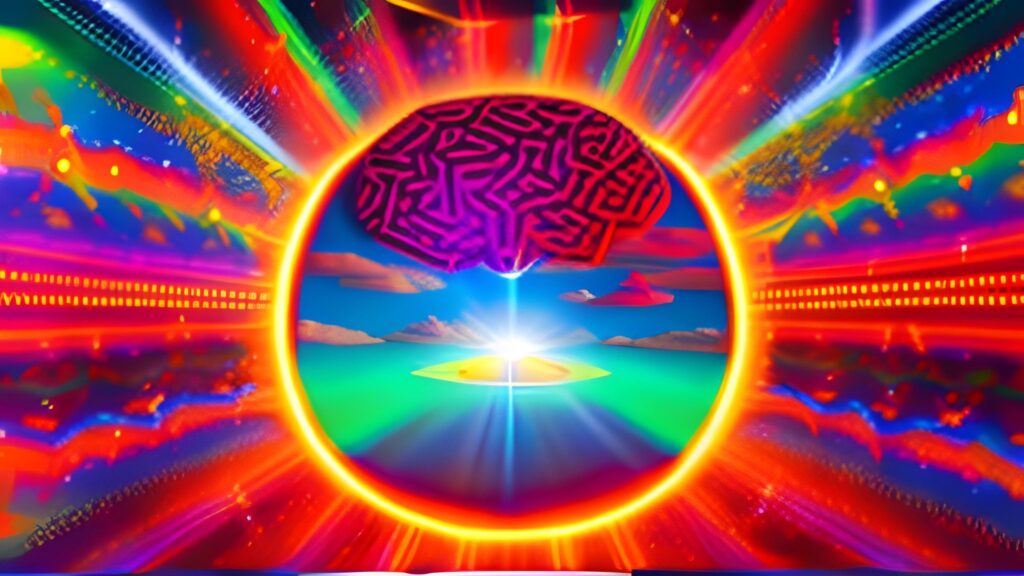
What is Enlightenment?
Enlightenment refers to the action of elevating the state of being in understanding, insight, education, learning, knowledge, and awareness. In a spiritual context, especially in Buddhism, enlightenment represents the attainment of spiritual knowledge or insight, liberating a person from the cycle of rebirth. Historically, the term also refers to a European intellectual movement that took place during the late 17th and 18th centuries. This period, known as the Enlightenment, emphasized reason and individualism over tradition. It was heavily influenced by philosophers such as René Descartes, John Locke, and Isaac Newton. The Enlightenment promoted rational thinking, scientific inquiry, and the pursuit of individual liberties.
Enlightenment is a state of profound understanding, awareness, and insight that transcends ordinary perception and knowledge. It often involves a deep comprehension of fundamental truths about existence, the self, and the universe. Enlightenment is typically associated with a sense of inner peace, liberation from suffering, and a heightened sense of clarity and wisdom. It can be achieved through various paths, including spiritual practices, self-discovery, and philosophical contemplation, and is often seen as a goal of personal and spiritual growth.

Unveiling the Shadows
In a society that often discourages the expression of our true selves, exploring the multifaceted dimensions of human existence heightens our ability to achieve true freedom. By embracing our shadows, as inspired by Friedrich Nietzsche, and its relation to enlightenment and self-acceptance, we can shed light on integrating our unconscious selves with our conscious beings for transformative enlightenment.
Most individuals tend to shy away from fully expressing themselves, fearing social discomfort caused by embracing aspects of their identity that society deems unacceptable. Friedrich Nietzsche’s philosophy challenges this notion by advocating for the integration of both conscious and unconscious aspects of our being. This integration process begins with acknowledging the presence of “The Shadow,” a concept popularized by Carl Jung in his work on analytical psychology. Nietzsche, too, believed that this hidden part holds the key to unlocking our true potential and achieving genuine freedom.
The Illusion of the Ideal Self
Within our conscious selves, we construct an ideal image, piecing together fragments of our past that we deem good and acceptable. This ideal self becomes a shield against the uncomfortable aspects of our identity that we repress in the unconscious. Nietzsche would argue that fixating on this ideal self restricts our growth and limits our capacity to attain enlightenment. By perpetuating this illusion, we deny ourselves the opportunity to explore the depths of our true potential.

Shadow Integration
Nietzsche emphasized the significance of embracing our shadows to achieve self-actualization. He believed that true enlightenment could only be attained by delving into the darker aspects of our being. Nietzsche’s concept of the “will to power” suggests that by integrating our shadow self, we tap into our hidden potential, enabling us to transcend societal norms and expectations. This process demands self-acceptance and courage to confront our fears and weaknesses.
Confronting Fear: A Path to Growth
Imagine a great musician, however, the fear of failure inhibits them from auditioning for the symphony to test their skills among their high-performing peers. Nietzsche’s philosophy prompts us to face this fear and confront our shadows. By taking the plunge, acknowledging both our strengths and weaknesses, we open ourselves up to growth and self-discovery. This journey may initially be challenging and uncomfortable, but the rewards in terms of personal growth and fulfillment are unparalleled.
From Potential to Actuality
In our pursuit of freedom, we often fall into the trap of clinging to the potential of what we could be, rather than actively working towards actualizing our dreams. Nietzsche believed that true growth occurs in the real world, where we are measured, ranked, and confronted with reality. Rejecting our shadows and selectively embracing only the parts of ourselves we deem desirable leads to a life filled with regrets. By embracing our shadows and integrating our hidden potential, we break free from the confines of a fantasy world and step into the realm of actuality.
The Soul’s Inherent code
In James Hillman’s book, “The Soul’s Code: In Search of Character and Calling,” he delves into the concept of the soul’s inherent code, its unique calling and purpose in life. This perspective aligns with the idea of embracing our shadows and integrating our hidden potential.
Hillman argues that each individual possesses a unique blueprint, an innate pattern or calling imprinted on our souls. This blueprint, often obscured by societal expectations and conditioning, holds the key to unlocking our true potential and achieving a sense of fulfillment. By exploring and embracing our shadows, those aspects of ourselves that we may consider undesirable or unacceptable, we come closer to understanding our soul’s code.

The process of shadow integration, as inspired by Nietzsche’s philosophy, aligns with Hillman’s belief that true self-discovery and self-actualization require us to delve into the depths of our being. By acknowledging and accepting our shadows, we gain a deeper understanding of our authentic selves and uncover the hidden talents, passions, and purposes that make us unique. Aligning our lives with our true calling, ultimately leads to a more fulfilling and purposeful existence.
Conclusion
As Nietzsche posits, freedom begins with self-acceptance and the willingness to embrace our shadows. By integrating our unconscious selves into our conscious beings, we embark on a transformative journey of self-improvement. The path to enlightenment and true freedom requires us to confront our fears, acknowledge our weaknesses, and embrace our true potential. Through this process, we unlock the doors to personal growth, authenticity, and a life lived to the fullest.
Prepare to embark on a philosophical journey like no other with Friedrich Nietzsche’s ‘Thus Spoke Zarathustra.’ This extraordinary work is a profound exploration of human existence, morality, and the quest for self-mastery. Nietzsche’s brilliant prose invites you to accompany the enigmatic Zarathustra as he descends from the mountains to share his wisdom with the world. Within its pages, you’ll encounter powerful ideas that challenge conventional thinking and inspire introspection. ‘Thus Spoke Zarathustra’ is not just a book; it’s an odyssey into the depths of the human soul, a transformative experience that will leave you questioning the very foundations of your beliefs and guiding you toward a path of self-discovery and enlightenment.
Dive into the fascinating realm of the human psyche with Carl Jung’s ‘The Archetypes and the Collective Unconscious.’ This profound work delves deep into the mysterious depths of the human mind, unraveling the secrets of archetypes that shape our thoughts, dreams, and behaviors. Jung, a pioneer in the field of psychology, invites you to embark on a journey through the collective unconscious, where ancient symbols and universal themes reside. As you explore the intricate web of archetypal imagery, you’ll gain profound insights into the hidden forces that influence our lives. ‘The Archetypes and the Collective Unconscious’ is a timeless masterpiece that will expand your understanding of the human experience, offering a transformative perspective on the interconnectedness of our inner worlds.
self-discovery with James Hillman’s ‘The Soul’s Code: In Search of Character and Calling.’ This captivating work invites you to explore the depths of your own soul and uncover the unique blueprint that defines your character and purpose in life. Hillman eloquently delves into the concept of the soul’s inherent code, a hidden pattern that shapes our destinies and guides us towards our true calling. As you immerse yourself in his thought-provoking insights, you’ll gain a deeper understanding of your authentic self and the extraordinary potential that lies within. ‘The Soul’s Code’ is a timeless masterpiece that will inspire you to embrace your shadows, acknowledge your strengths and weaknesses, and ultimately, live a life of profound fulfillment and purpose



